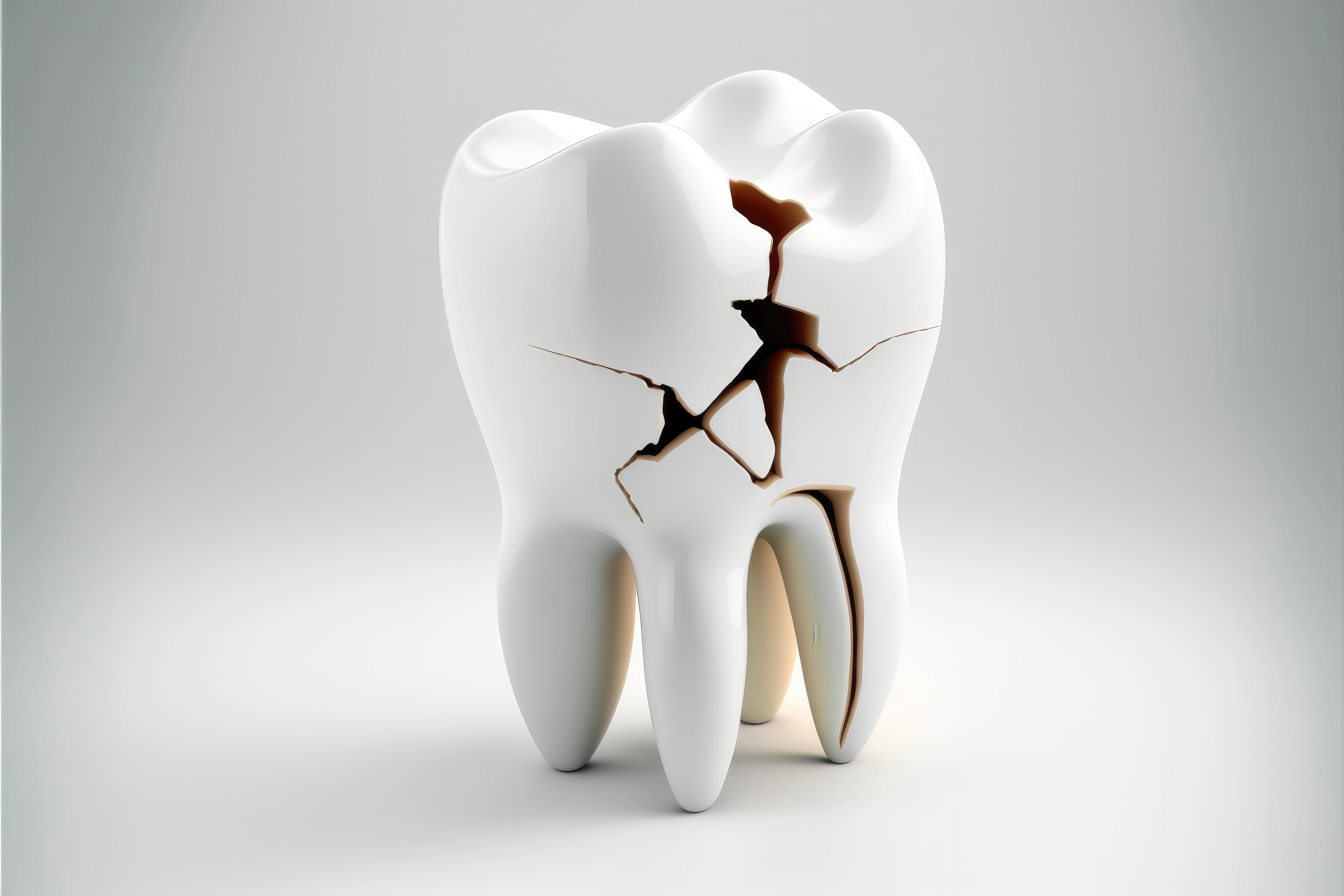Accidents happen, and dental emergencies can be very traumatic. A broken tooth that won’t stop bleeding is one example of a dental emergency. This is a painful and worrisome issue that requires quick attention.
In this blog post, we’ll go through the causes of a fractured tooth that won’t stop bleeding, as well as first-aid measures and the necessity of expert dental care from our dentist in Sundance.
Causes of a Broken Tooth
- Trauma: An accident, a fall, or a sports-related injury can all result in a broken tooth. A tooth can be broken or dislodged by impact force, resulting in bleeding.
- Tooth decay: Advanced dental decay weakens a tooth’s structure, making it more prone to breaking. Untreated decay might result in a fractured tooth with bleeding.
- Biting on hard objects: Biting down on something hard, such as ice, a popcorn kernel, or a non-food object, can chip or break a tooth.
- Weakened enamel: Teeth with compromised enamel due to acid erosion or bruxism (tooth grinding) are more prone to fracture.
First Aid for a Broken Tooth That Won’t Stop Bleeding
Dealing with a damaged tooth that won’t stop bleeding can be a stressful situation, but following the proper first aid protocols will help you handle the immediate problem until you can seek expert dental treatment. Here’s what you should do:
Stay Calm
The first and most crucial thing to remember is to be as calm as possible. A clean head will enable you to deal with the situation in a better way.
Wash Your Hands
Make sure your hands are clean before touching your mouth or the broken tooth to prevent infection.
Rinse Your Mouth
Rinse your mouth gently with lukewarm water. This will assist in cleaning up the area and removing any blood or debris. Use caution while using hot or cold water, since excessive temperatures might aggravate the discomfort.
Control Bleeding
Fold a piece of sterile gauze, a clean cloth, or an unused tea bag to make a thick pad. Bite down on the pad to offer mild, consistent pressure to the damaged tooth. This pressure aids in controlling the progression of bleeding. If the pad becomes saturated with blood, replace it without removing the previous one.
Use a Cold Compress
A cool compress applied to the outside of your cheek near the fractured tooth will help minimize swelling and discomfort. Use it in 15-minute intervals with pauses.
Over-the-Counter Pain Relief
You can take over-the-counter pain relievers like ibuprofen or acetaminophen in the recommended dosage if you are feeling uncomfortable. Aspirin should be avoided since it might cause excessive bleeding.
Avoid Certain Foods and Activities
To minimize further damage and discomfort, avoid eating hard or crunchy items, as well as chewing gum or utilizing the afflicted side of your mouth.
Keep Your Head Elevated
Reduced blood flow to the affected area will help with sleeping or relaxing with your head slightly raised, which may help manage bleeding.
Seek Professional Dental Care
A broken tooth needs professional dental care in order to determine the extent of the damage and the best course of action. Make an appointment with your dentist near you or an emergency dental facility as soon as possible.
Why It’s Important to Get Professional Treatment
While these first aid measures might help temporarily control the issue, it is essential to seek expert dental care as soon as possible. A fractured tooth is a dental emergency that needs immediate care in order to avoid further damage and get the best possible outcome.
Here are some of the reasons why expert dental care is so essential:
- Assessment and x-rays: To determine the severity of the injury, a dentist will extensively examine the damaged tooth, and surrounding tissues, and may take X-rays.
- Treatment options: Treatment options may include bonding, dental crowns, root canals, or extraction, depending on the severity of the break. Your dentist will propose the best alternative for your particular situation.
- Preventing infection: Broken teeth can expose the tooth’s pulp or inner tissues, increasing the risk of infection. Prompt dental treatment can help prevent the spread of infection.
- Pain management: Dental practitioners may effectively relieve pain and discomfort associated with a damaged tooth.
A damaged tooth that continues to bleed is a dental emergency that requires quick treatment and care. While first aid measures might assist in temporarily controlling the problem, expert dental care from an emergency dentist near you is required for an accurate assessment and treatment plan. Keep in mind that prompt treatment can make a huge difference in keeping your dental health and avoiding subsequent dental problems.
Experience Exceptional Dental Care at Our Practice
At Comfort Family Dental, we encourage you to experience exceptional dental treatment. Our professional team is dedicated to providing you with quality treatments that place your comfort and dental health first. We will ensure that your dental visit is as comfortable as possible by using cutting-edge technology and a patient-centered approach.
Schedule your appointment today!


